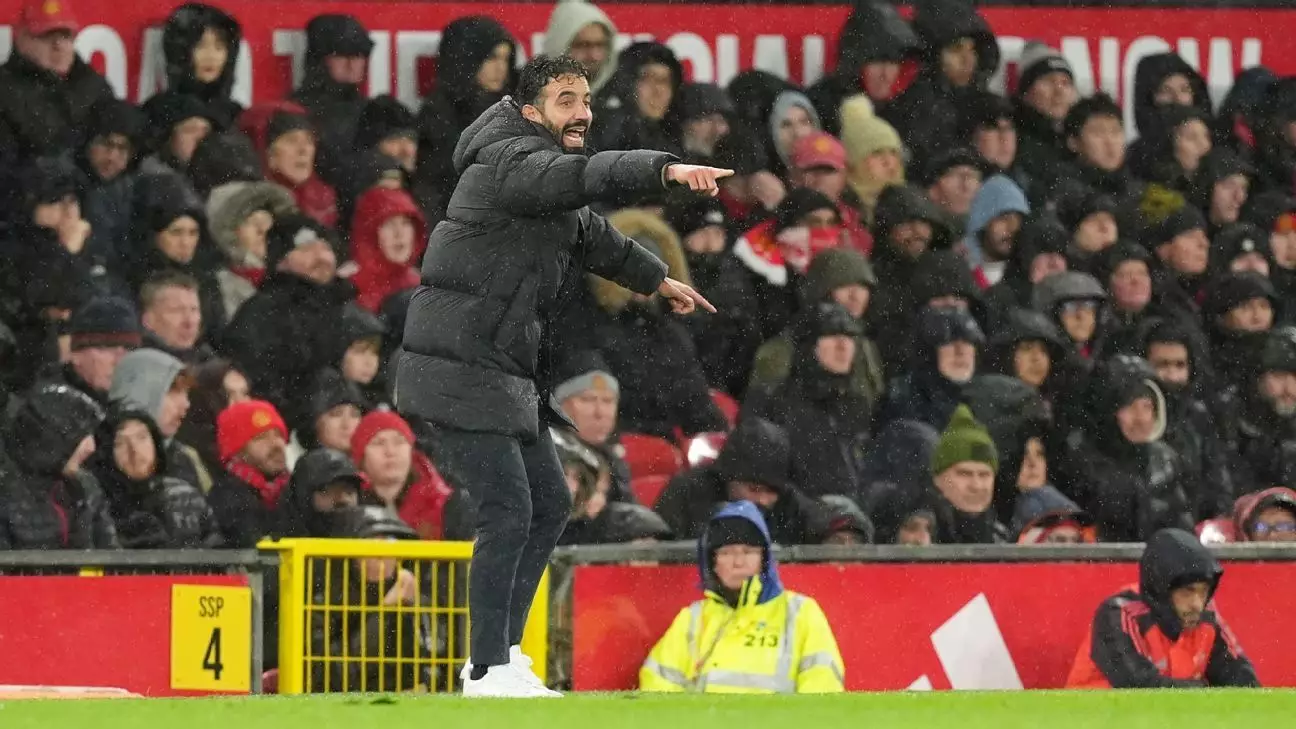Manchester United’s recent defeat against Nottingham Forest epitomizes the challenges currently plaguing one of the world’s biggest football clubs. With Forest claiming a rare victory at Old Trafford— their first in three decades— manager Ruben Amorim’s post-match reflections paint a stark picture of a team grappling with its identity and form. United’s position— sitting 13th in the Premier League— underlines a concerning trend, as they record only 19 points after 15 matches, a statistic reminiscent of their struggles during the 1986-87 season. This backdrop of disappointment underscores the weight of expectation that now rests on Amorim’s shoulders.
In his remarks, Amorim acknowledged the emotional toll that such losses take, particularly in a club with such a storied legacy. He seemed acutely aware of the connection between performance and fan sentiment; the palpable despair evident in the stadium after conceding goals is an important aspect to consider. His declaration, “it will be a long journey,” speaks not only to the current predicament but also to the inevitability of time needed to instigate change. Emphasizing a focus on performance, Amorim indicated a desire for progress despite the immediate setbacks. Acknowledging that setbacks can be hard, particularly when they come with added scrutiny from fans and commentators alike, he stressed the importance of maintaining a consistent approach to training and development.
Recurring Defensive Errors
Analyzing the game itself reveals key areas needing improvement, specifically in defense. United’s vulnerability surfaced through a litany of mistakes— from Lisandro Martínez’s failure to jump at a corner to Bruno Fernandes’s ill-timed pass that led to a quick goal for Forest. Furthermore, André Onana, who has been under the microscope for various miscalculations, was involved in two crucial errors that directly contributed to the three goals conceded. Such defensive frailties point to a lack of cohesion and confidence within the backline, suggesting systemic issues that require urgent attention.
While Amorim draws a parallel between his experiences at Sporting CP and his current tenure at United, there’s an undeniable difference in pressure levels. Although he acknowledged similar phases of struggle in his previous role, the spotlight at Manchester United is magnified, as the expectations of performance and results bear heavily upon him. The intense scrutiny from both media and fans compounds this experience, creating a need for robust leadership and resilience.
Ultimately, Amorim’s understanding that a turnaround will require persistent effort is crucial. In football, similar periods of decline often precede significant comebacks, but they necessitate a recommitment to foundational principles and tactical discipline. As he continues to navigate this “long journey,” the focus should pivot toward rebuilding confidence and rectifying the gaping holes in the squad’s defensive setup. Whether or not Amorim has the tools to transform the current plight into success remains a question that only time will answer, but persistence and adaptation are imperatives as Manchester United steadies itself on the tumultuous road back to the top.

